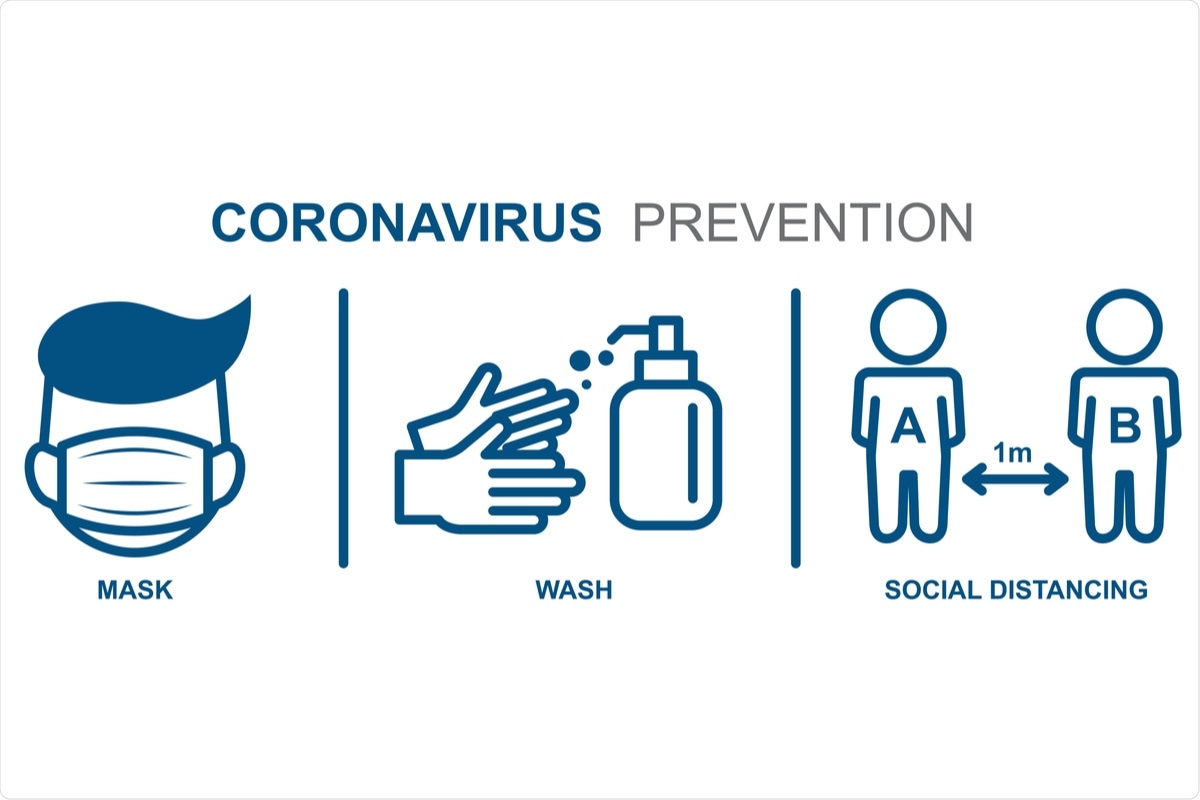In early 2020, 329 citizens and residents of the United States, along with their partners, voluntarily repatriated from Japan to the United States on the Diamond Princess cruise ship. Soon after their departure, a coronavirus disease 2019 (COVID-19) outbreak was declared among this ship's crew members and passengers.
The travelers were quarantined and those who tested positive for COVID-19 were isolated at home or in hospitals. During this time, all passengers were tested using real-time reverse transcription-polymerase chain reaction (RT-PCR) every other day.
 Study: Testing for SARS-CoV-2 among cruise ship travelers repatriated to the United States, February – March 2020. Image Credit: Design_Cells / Shutterstock.com
Study: Testing for SARS-CoV-2 among cruise ship travelers repatriated to the United States, February – March 2020. Image Credit: Design_Cells / Shutterstock.com

 *Important notice: medRxiv publishes preliminary scientific reports that are not peer-reviewed and, therefore, should not be regarded as conclusive, guide clinical practice/health-related behavior, or treated as established information.
*Important notice: medRxiv publishes preliminary scientific reports that are not peer-reviewed and, therefore, should not be regarded as conclusive, guide clinical practice/health-related behavior, or treated as established information.
Analysis of RT-PCR results and symptoms of travelers
In a recent study published on the preprint server medRxiv*, a group of researchers discusses the RT-PCR results and symptoms experienced by the travelers to illustrate the viral dynamics during asymptomatic or mild COVID-19 infection.
Overall, this group aimed to guide testing strategies after exposure to severe acute respiratory syndrome coronavirus 2 (SARS-CoV-2), which is the virus responsible for COVID-19. In their work, the researchers conducted a retrospective, longitudinal evaluation of the repatriated travelers who tested positive for SARS-CoV-2.
Of the 328 repatriated travelers that were quarantined on the Diamond Princess cruise ship, 45 (14%) tested positive for SARS-CoV-2. Of these 45 travelers, 28 (62%) had a positive RT-PCR result in Japan prior to their departure. Comparatively, 10 (22%) of the travelers were negative for SARS-CoV-2 in Japan but were subsequently found positive for SARS-CoV-2 upon their arrival in the United States.
All travelers who tested positive for SARS-CoV-2 remained asymptomatic or experienced only mild symptoms during the isolation period on the ship. Notably, about 50% of the travelers were presymptomatic or asymptomatic at the time of their first positive test.
Several travelers remained in extended isolation due to persistent detection of SARS-CoV-2 based on contemporaneous policies. More specifically, due to prolonged viral shedding, 58% of these individuals remained in isolation three weeks post-diagnosis.
The fact that most of these travelers were asymptomatic or presymptomatic at the time of testing positive for COVID-19 highlights that symptom-based testing after potential viral exposure is not sufficient to detect all infections and prevent further transmission.
“Our findings support testing within 3-5 days after possible SARS-CoV-2 exposure to comprehensively identify infections and mitigate transmission.”
The importance of masks and social distancing
According to the authors, in settings where rapid viral transmission is possible, testing, regardless of whether symptoms are present or not, should be performed during COVID-19 outbreaks in an effort to detect asymptomatic and presymptomatic infections. Risk mitigation strategies such as hand hygiene, mask usage, and physical distancing should be universally adopted, as these measures are crucial in preventing viral transmission from asymptomatic individuals.
Most of the repatriated travelers in this study remained in isolation for 21 days or more due to persistent viral shedding. It should be noted that these travelers would have been released from isolation 10 days after the onset of their symptoms or their first positive test as per the current symptom- and time-based isolation protocol.
Interestingly, only 30% of the travelers had tested negative at 10 days following their first positive test result. Although there is an inverse correlation between the amount of viral genetic material in the specimen and the Ct value, qualitative RT-PCR tests do not determine the viral load. The Ct value dynamics in this study agree with prior findings that demonstrate a reduction in viral ribonucleic acid (RNA) concentrations in upper respiratory specimens after their initial diagnosis.
 Image Credit: Monster Ztudio / Shutterstock.com
Image Credit: Monster Ztudio / Shutterstock.com
Study takeaways
In conclusion, the findings of this study support SARS-CoV-2 testing within 3 to 5 days of possible viral exposure to comprehensively detect infections and minimize transmission. This will also help guide both symptom- and time-based isolation recommendations.
The authors agree that their analysis has many limitations and that the results may not be representative of the general population in the United States. This is largely due to the small sample size of repatriated travelers in this study that were generally of an older age. Moreover, this study did not include travelers who were hospitalized in Japan with severe COVID-19.
“Our findings illustrate the importance of timely testing after possible SARS-CoV-2 exposure and lend support to symptom- and time-based isolation recommendations, rather than test-based criteria.”

 *Important notice: medRxiv publishes preliminary scientific reports that are not peer-reviewed and, therefore, should not be regarded as conclusive, guide clinical practice/health-related behavior, or treated as established information.
*Important notice: medRxiv publishes preliminary scientific reports that are not peer-reviewed and, therefore, should not be regarded as conclusive, guide clinical practice/health-related behavior, or treated as established information.
Journal reference:
- Preliminary scientific report.
Testing for SARS-CoV-2 among cruise ship travelers repatriated to the United States, February–March 2020, Michelle A. Waltenburg, Mary A. Pomeroy, Laura Hughes, Jeremy A.W. Gold, Oren Mayer, Arnold Vang, Benjamin D. Hallowell, Loretta Foster, Kerui Xu, Rita Espinoza, Kristina Hsieh, Emily G. Pieracci, Gabriella Wuyke, Juliana Da Silva, R. Paul McClung, Jonathan Steinberg, Matthew Westercamp, Snigdha Vallabhaneni, Jessica Li, Amy L. Valderrama, George R. Grimes, R. Reid Harvey, Randall J. Nett, Kindra Stokes, Stephen Lindstrom, Allison D. Miller, Eric P. Griggs, Jennifer L. Milucky, Adam Bjork, Valerie Albrecht, Wendi L. Kuhnert, Carolyn V. Gould, Nancy W. Knight, Noele P. Nelson, Margaret A. Honein, Casey Barton Behravesh, CDC COVID-19 Investigation Team, Christine L. Dubray, Grace E. Marx, medRxiv, 2021.06.07.21258318; doi: https://doi.org/10.1101/2021.06.07.21258318, https://www.medrxiv.org/content/10.1101/2021.06.07.21258318v1